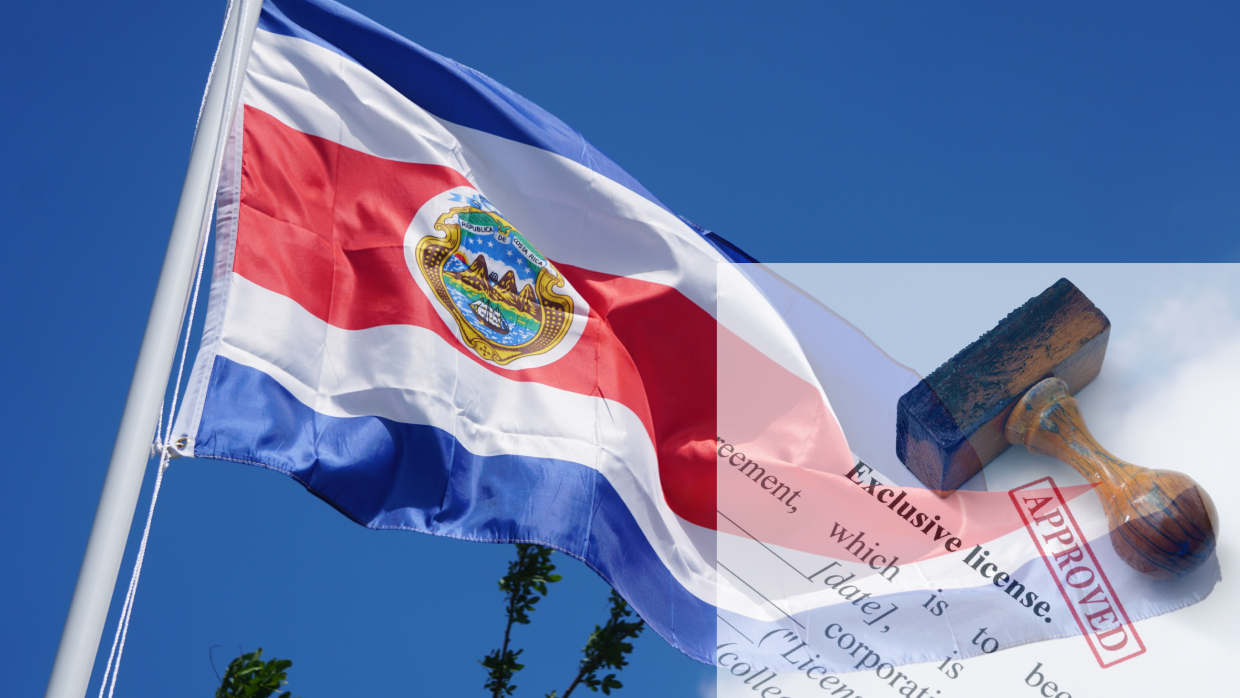Real estate licensing is a crucial aspect of the real estate industry, ensuring professionalism, ethical standards, and consumer protection. In the vibrant market of Costa Rica, understanding the regulations and requirements for obtaining a real estate license is essential for both aspiring agents and property buyers. This article delves into the intricate landscape of real estate licensing in Costa Rica, exploring its history, regulatory framework, benefits, challenges, and the impact on the local market. By shedding light on the nuances of real estate licensure in Costa Rica, individuals can gain insights into the importance of working with licensed professionals in this dynamic and evolving sector.
From trading properties over a cup of Costa Rican coffee to navigating through jungle-like regulations, real estate licensing in Costa Rica has come a long way. The concept of formal licensing started gaining traction in the 1990s as the real estate market matured, and the need for regulation became apparent.
Understanding the role of licenses in real estate
Licenses are an essential component of the real estate industry in many countries around the world. They serve as a regulatory mechanism to ensure that professionals have met certain standards of education, experience, and ethical conduct. By obtaining a license, real estate agents and brokers demonstrate their commitment to professionalism and their dedication to serving their clients’ best interests. Licenses also provide a level of protection to buyers and sellers, as they can have peace of mind knowing that they are working with qualified individuals who are accountable to a governing body.
Does Costa Rica have real estate licenses?
In Costa Rica, the real estate industry operates slightly differently than in some other countries. Unlike in the United States, for example, there is no mandatory licensing requirement for real estate professionals. This means that anyone can technically work as a real estate agent or broker in Costa Rica without obtaining a specific license. While this may raise eyebrows and cause concern for some prospective buyers or sellers, it’s important to understand the context in which the industry operates in Costa Rica.
Current Regulatory Framework for Real Estate Licensing
Costa Rica’s real estate licensing is now under the watchful eye of the Costa Rican Chamber of Real Estate Brokers (CCCBR) and the Real Estate Division of the Chamber of Architects. These bodies oversee licensing requirements, ensuring that real estate agents meet certain standards to protect both buyers and sellers in this tropical paradise. It is a requirement of all real estate agents to be registered with SUGEF. This involves having a compliance officer and reporting on sales and the countries to which the buyers originated from.
Requirements for Obtaining a Real Estate License in Costa Rica
- Educational and Professional Experience Prerequisites
To snag that coveted real estate license in Costa Rica, aspiring agents must first prove their commitment to the craft. This involves completing a real estate education program, clocking in some real-world experience, and possibly even showcasing their negotiation skills over a plate of gallo pinto (a local dish).
- Examination and Licensing Process
Once the educational and experience boxes are ticked, it’s time to put pen to paper (or perhaps thumb to touchscreen) and pass the real estate licensing exam. Successfully navigating this hurdle earns you the right to legally strut your stuff in the Costa Rican real estate market.
Role of Licensing Authorities in Regulating Real Estate Agents
Licensing authorities in Costa Rica are the unsung heroes of the real estate world, ensuring that agents play by the rules and uphold ethical standards. They act as the guardians of integrity in an industry that can sometimes be as unpredictable as a sudden rainstorm in the tropics.
When it comes to enforcing regulations, licensing authorities in Costa Rica don’t monkey around. They have the power to investigate complaints, sanction those who stray off the path of righteousness, and generally keep the real estate landscape in Costa Rica as lush and green as its rainforests.
Benefits of Working with Licensed Real Estate Professionals in Costa Rica
- Consumer Protection and Legal Safeguards
Partnering with a licensed real estate professional in Costa Rica is akin to slathering on SPF 50 before hitting the beach – it’s all about protection. Licensed agents provide a layer of security for buyers and sellers, offering peace of mind in an industry where transparency is as valuable as a beachfront property.
- Quality and Professionalism in Real Estate Transactions
When you work with a licensed real estate pro in Costa Rica, you’re not just getting a go-between for property transactions – you’re getting a seasoned expert. These professionals bring a level of professionalism and expertise to the table that can turn a potentially stressful transaction into a smooth sail down the peaceful waters of the Pacific.
Alternatives to Real Estate Licenses in Costa Rica
While licenses may not be mandatory in Costa Rica, there are alternative ways for buyers and sellers to protect their interests. One option is to work with a reputable real estate firm that has a proven track record of success and a strong reputation in the industry. These firms often have their own rigorous vetting processes in place to ensure that their agents and brokers meet certain standards of professionalism and competence.
Another alternative is to seek out professionals who have obtained certifications from professional associations, such as the CCCBR mentioned earlier. While certification is not equivalent to a license, it can still provide reassurance to clients that the individual they are working with has undergone specific training and has met certain standards of knowledge and competence.
Challenges and Limitations of Real Estate Licensing in Costa Rica
- Barriers to Entry and Industry Competition
Getting a real estate license in Costa Rica can sometimes feel like trying to crack a secret code. The requirements and processes can be daunting, acting as barriers for newcomers looking to enter the industry. Additionally, the competitive landscape can be tough to navigate, with seasoned professionals often dominating the market.
- Issues of Compliance and Enforcement
Enforcing real estate regulations in Costa Rica can be as tricky as catching a slippery sloth (which is no easy task!). There are challenges in ensuring that all real estate professionals comply with the licensing regulations, leading to potential issues of misconduct and unethical practices in the industry.
The Importance of Working with Licensed Professionals in Costa Rica
While real estate licenses may not be mandatory in Costa Rica, it is still highly recommended to work with licensed professionals when buying or selling property. Licensed agents and brokers have the knowledge, skills, and accountability that can make a significant difference in the success of a transaction. They can guide buyers and sellers through the intricacies of the Costa Rican market, ensure compliance with legal requirements, and provide valuable advice and insight.
By working with licensed professionals, buyers and sellers can have peace of mind knowing that they are in capable hands and that their best interests are being protected. Licensed professionals are committed to upholding ethical standards and are bound by a code of conduct, which means they must act in a fair and transparent manner. This can help build trust and foster positive relationships between clients and professionals, leading to successful and mutually beneficial transactions.
In conclusion, real estate licensing plays a vital role in shaping the integrity and professionalism of the property market in Costa Rica. By adhering to licensing requirements and working with licensed professionals, both industry insiders and property buyers can navigate transactions with confidence and trust. As the real estate landscape continues to evolve, understanding the significance of licensing authorities and regulations is key to fostering a transparent and thriving real estate sector in Costa Rica.
Ready to explore the vibrant real estate opportunities in Costa Rica with confidence? At Flamingo Beach Realty, we prioritize integrity and professionalism, ensuring that every transaction is handled with trust and expertise. Whether you’re buying, selling, or investing, our licensed and registered professionals are here to guide you every step of the way. Contact us today to discover your dream property in Costa Rica and experience the difference of working with a trusted real estate partner. Let’s make your real estate goals a reality together!




